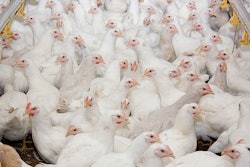What makes a food “wholesome” is on many people’s minds as they prepare meals at home during COVID-19. Eggs were voted most “wholesome” protein product by a quarter of consumers in a recent three-continent survey conducted by Cargill. Milk and seafood came next globally, but the U.S. was more bullish on beef than fish, ranking the meat third—along with plant-based protein products. As to what people mean when they say a food is “wholesome,” that depends on who you ask, found the poll.
“This survey shows how ‘wholesome’ has become a catch-all for things consumers care about, including health and well-being, sustainability and economic vibrancy,” says David Webster, president of Cargill’s Animal Nutrition & Health enterprise. “Our value to customers is to help them succeed in all these areas—from precision nutrition to gut and immune health to animal welfare to farmer prosperity with programs like Hatching Hope and farmer trainings.”
The U.S., Norway prioritize benefits for people; the Philippines, planet
The quarterly Feed4Thought survey, which polled 3,500 people in the U.S., Norway and the Philippines, found that being “naturally high in beneficial nutrients” was most associated with wholesomeness. But while a majority of survey takers in the U.S. and Norway insisted a “wholesome” food be good for the person eating it, Filipinos (and Gen Z Americans) prioritized benefits for the environment.
Cargill’s holistic approach to wholesomeness reflects these diverse priorities, notes Chuck Warta, who leads Cargill Health Technologies. “Take the blending of programs like Smartshield™, which includes on-farm consultation, tech support and process improvements, with Diamond V’s feed-based immune and gut health product,” he says. “This combination has helped poultry producers reduce Salmonella prevalence by up to 50% and move toward antibiotic-free production at the same time.”
Ninety percent of Filipino respondents said sustainability was a top factor in gauging whether a food was “wholesome,” versus 70% of Norwegians and 69% of Americans.
“These results show the importance of transparency—consumers want to know where their food comes from and how it was produced,” says Dave Robb, sustainability manager for Cargill’s aqua nutrition business. “Tools like Cargill’s traceability reports and life cycle assessment connect consumers to the food they eat through quantitative sustainability measures, like greenhouse gas (GHG) emissions. The Cargill team can tell salmon farmers, for example, the GHG footprint, attributed to feed, of their fish production, helping them tell their farm’s sustainability story.”
Norwegians were most sensitive to how animals are housed or treated—being the only ones to rank this above a farm’s sustainability in judging whether their animal products are “wholesome.”
Cargill customer Scott Kasper, who runs the 300-head dairy farm, Kashome Holstein, in Minn., U.S., with his family, says animal welfare in agriculture has come a long way. “Cattle today are raised in free-stall barns. They have their run of the building. They’re able to go eat and drink when they want. They are on mattresses and bedding. So, they are well taken care of.”
Wholesomeness is important—and farmers mostly deliver it, say consumers
Fifty-six percent of people polled think today’s farmers are indeed producing “wholesome” food, with Norwegians and Filipinos somewhat more confident in this than Americans.
“Consumers are very knowledgeable about what they are looking for in a product,” says Kasper. “And it’s up to us, the farmers, to try to continue to keep up with what the consumer wants.”
And what consumers don’t want. When asked which practices were incompatible with wholesomeness, Feed4Thought participants ranked the use of synthetic fertilizers and pesticides first. Digital technologies, conversely, were widely accepted—perhaps explaining why respondents were split over whether farming innovations were helping produce more “wholesome” food (41%), hindering (10%) or doing a mix of both (38%).
“The data show us technologies can help deliver what consumers care about most,” says Scott Ainslie, digital leader for Cargill’s animal nutrition business. “A customer in Ohio is using our Cargill Nutrition System to deliver precise nutrition so there are no excess nutrients to enter local waterways—and animals are healthier and more productive. The Agriness farm management platform has helped our customers in Brazil wean an average of one extra piglet per sow per year—and up to four extra piglets over time—with better weight, health and well-being. We talk about these results on our Feeding Intelligence platform to help both consumers and producers understand that wholesomeness and science can co-exist.”















